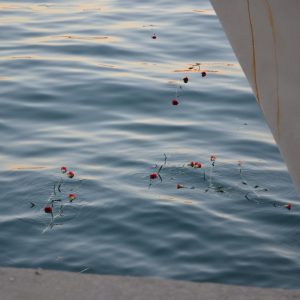A few days ago we sent a list of general update queries to EASO, asking about the status of the premises, recruitment procedures and the Consultative Forum. In response, I was invited to a meeting with Dr. Visser, Executive Director, and his advisor Ms. Lonneke Kapoen.
I just returned from a good introductory meeting, held in EASO’s current premises just seconds away from one of Malta’s open centres – Marsa Open Centre. Mr. Visser explained that work on the official premises is not yet finalised, and he is expecting to move there with his team in about mid-2012.
EASO’s current team is in fact a very small one, with less than skeleton staff supporting Visser. Following the recruitment calls (27 in all, also published on the EASO Monitor), EASO received around 2,500 applications…a possible sign of great interest in EASO’s activities. The actual target is for EASO to have around 60 recruited staff-members by 2012, together with a group of seconded national experts (calls also published on the EASO Monitor), aiming to reach around 35 by the end of year and to reach staffing targets by end 2012.
We also had a brief discussion about the Consultative Forum, since it is definitely an issue we are all closely watching. We agree that at the moment there is no existing perfect structure EASO can borrow for the Forum, so Visser’s conducting an exercise of evaluating current systems with a view of adopting the positive elements whilst trying to avoid or improve the negative ones.
The Director repeatedly stressed the importance EASO will give to NGO contributions, particularly in view of their technical expertise that can be seen to complement the experience of the MS. For this happen, Visser seems to be trying to find a Forum model that will on the hand be an inclusive venue whilst simultaneously ensuring that quality NGO expertise is efficiently channelled.
I raised the concern we’ve often shared that EASO seems to be perceived as the saviour of the Mediterranean region, with its support of EU MS facing ‘particular pressures’ being given much more importance than its other responsibilities. The EASO Monitor has repeatedly stressed that we’d rather see EASO focus its energies on a more long-term approach, primarily by focusing on finalisation and appropriate implementation of CEAS.
We’re glad to confirm that Visser is also of this view. Whilst the need to support MS facing difficulties, he reiterated his position that EASO can truly offer added value if it focuses on a “permanent support system” building on a “community of values”. To do this, Visser identifies the following as key target areas:
-
Education, primarily through the Asylum Curriculum, to ensure a solid, basic and EU-wide common training for all asylum case-officers;
-
Common assessment of situations in countries of origin, in order to avoid disputes over factual situations by agreeing on situational elements;
-
Data analysis, statistics and research into the EU’s asylum experiences, so that policies, measures and projects will be based on empirical evidence as opposed to possibly incorrect images.
Being an introductory meeting, I avoided entering into many details. Of course, I would have loved to discuss the Greek situation as well as Visser’s views on EASO’s possible impact on the northern EU MS. There will definitely be time for that at a later stage.

